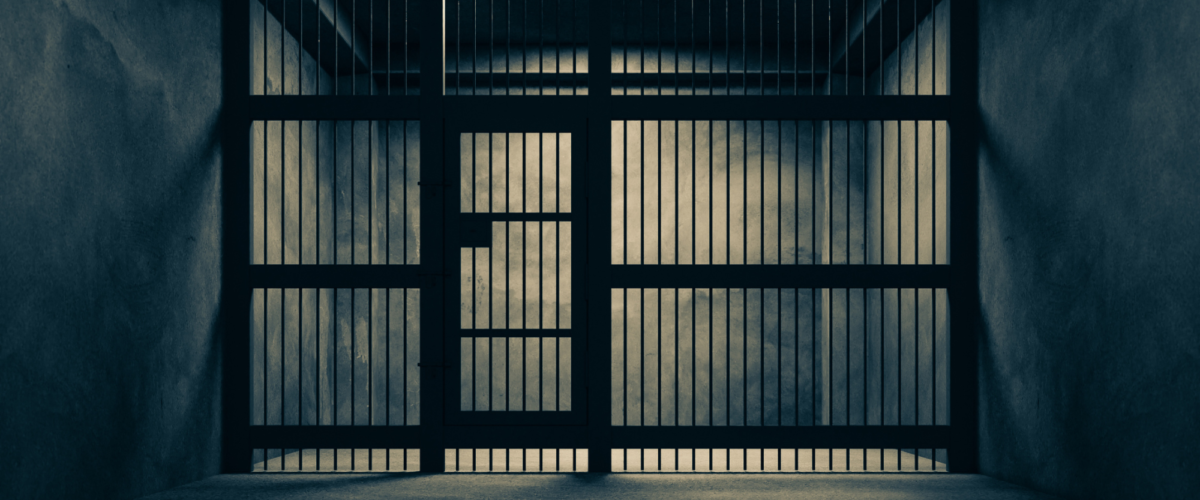This series analyses the changes proposed by the Criminal Law Bills in 2023. This article was first published as part of Project 39A’s Bharatiya Nagarik Suraksha Sanhita Bill, 2023 and Bharatiya Sakshya Bill, 2023: A Substantive Analysis, a complete version of which can be accessed here.
This post analyses the proposed modifications in the provision on remand, and discusses the implications of changes in the period and nature of custody.
Cl.58 of the BNSS, like s.57 CrPC, provides that arrested persons cannot be detained in police custody[1] beyond 24 hours. Cl.187 BNSS provides for the procedure when investigation cannot be completed within such 24 hours, and the accused is produced before a magistrate to determine custody. This clause seeks to replace s.167 CrPC, with some crucial modifications.
Cl.187 BNSS retains the timelines of sixty or ninety days and the concept of default bail, as in the CrPC. However, unlike s.167 CrPC, Cl.187(2) additionally provides that the detention in custody of fifteen days (in whole or in part) can be at any time during the initial forty or sixty days out of the sixty or ninety days period, as the case may be. Consistent with the position under the CrPC, Cl.187(2) empowers any magistrate to authorise detention, irrespective of whether they have jurisdiction to try the case; whereas Cl.187(3) requires a jurisdictional Magistrate. Further, Cl.187(3) provides that detention in custody can be authorised beyond the period of fifteen days, but omits the phrase ‘otherwise than in police custody’; implying that police custody can also be provided in such further period. It also specifies that the Magistrate should consider the status of the accused regarding bail, while giving custody. Additionally, through a new proviso added in Cl.187(5), it defines the kind of custody permissible under the provision. This piece discusses the significant modifications proposed in Cl.187, especially concerning police custody, along with possible implications.
I. Background
S.167 of the erstwhile CrPC, 1898 simply provided that the Magistrate could authorise detention not exceeding fifteen days. However, this provision was observed more in its breach than its compliance, with the police filing preliminary reports to extend the detention period till the investigation was completed.[2] Ultimately in the new CrPC of 1973,[3] a proviso was introduced in s.167(2) to empower the Magistrate to authorise detention in custody beyond the period of fifteen days, but up to a maximum of sixty or ninety days (depending on the extent of punishment prescribed); provided that such further custody beyond the period of fifteen days, could not be in police custody. Cl.167 also introduced default bail for the accused, if investigation was not completed within such sixty or ninety days.
It is clear from the scheme of ss.57 and 167 CrPC that the intention is to limit police custody and protect the accused from unscrupulous police officers.[4] Sub-clauses (2)(b), (2)(c), and (3) of s.167 CrPC[5] make it evident that the law understands the necessity of safeguards before such custody is granted. Custodial torture and deaths in police custody are a well documented reality,[6] and has been consistently acknowledged by the judiciary for its pervasiveness and as a matter of grave concern.[7] Constitutional protections against police excesses include Art.22(2) which provides for the right of every arrested and detained person to be produced before the nearest magistrate within twenty-four hours; Art.21 has been judicially interpreted to include the right against torture and assault by the state and its functionaries.[8] Further, the judiciary has brought in specific safeguards to prevent police excesses during custody, such as by laying down guidelines for arrest and detention in D.K. Basu v. State of West Bengal,[9] and measures like installation of CCTV cameras in police stations.[10]
II. Modifications in Duration and Manner of granting Police Custody
a. Extended duration of Police Custody
The total period of detention of an accused is the same under both s.167 and Cl.187, i.e. sixty or ninety days depending on the offence to which the investigation relates. Under the CrPC, police custody cannot exceed fifteen days. However, under Cl.187(3) BNSS, the Magistrate can authorise police custody detention for a period exceeding fifteen days. In fact, such police custody may be authorised for the entire period of detention, i.e. a maximum of sixty or ninety days, as the case may be. Given this, the only difference between Cl.187(2) and (3) is that detention under Cl.187(3) needs to be authorised by a magistrate with jurisdiction to try the case, unlike Cl.187(2). Otherwise unlike the CrPC, police custody detention can be authorised under both sub-clauses.
The proposed change is excessive and in stark contrast to even special legislations such as the UAPA where the duration of police custody permissible is only thirty days; and the investigating officer is required to file an affidavit providing reasons for seeking police custody if the accused is in judicial custody.[11] Even this safeguard is absent in the BNSS.
Extended police custody magnifies the likelihood of custodial violence; practically nullifying the constitutional and other safeguards against police excesses which recognise the pervasiveness of custodial violence, as noted above. This proposed change is bound to seriously undermine the accused’s fundamental rights under Art.21, including the rights to life, dignity, and physical and mental well being.[12]
This is also likely to adversely affect the accused’s fair trial rights; especially if they are from a marginalised background and do not have access to a lawyer at this stage, which is often the case.[13] Extended police custody increases the accused’s vulnerability to forced confessions and other fabrication of evidence. For instance, the accused are tortured into signing blank papers, which are used by the police to fabricate ‘disclosure statements’. These statements usually involve the accused revealing the location of the dead body or other objects related to the crime. It is then shown as if the body/objects were ‘discovered’ by the police due to the accused’s statement.[14] Such ‘discovery’ can then be treated as strong evidence against the accused under s.27 IEA. Courts have widely recognised the adverse effect of extended police custody on the reliability of evidence, and have routinely disregarded such disclosures as being involuntary and coerced, if obtained after prolonged police custody or multiple interrogations.[15] Courts have also doubted the voluntariness of confessions made to judicial magistrates, if the accused was produced from judicial custody but had been in extended police custody before that.[16]
b. Initial Police Custody in tranches, beyond the first fifteen days
Courts have differing interpretations of s.167(2) CrPC on the issue of whether police custody can be granted only in the first fifteen days after production before the magistrate or even thereafter. In Central Bureau of Investigation v. Anupam Kulkarni, a division bench of the Supreme Court held that police custody can be authorised only in the first fifteen days.[17] This is even if the accused was unavailable for interrogation for some days in this period, or if his involvement in other offences (in the same case) was discovered later during investigation.[18] In holding so, the court recognised the legislature’s intention in placing limitations on police custody, to protect the accused from methods adopted by unscrupulous officers.[19] This decision in Anupam Kulkarni was followed with approval by a larger three judge bench of the court.[20] However, other division benches of the Supreme Court sought reconsideration of Anupam Kulkarni. In Central Bureau of Investigation v. Vikas Mishra, the Supreme Court granted police custody after the first fifteen days because the accused had ‘frustrated the process’ by getting hospitalised and being unavailable for interrogation.[21] Recently, in V. Senthil Balaji v. State, the Supreme Court again held that s.167(2) does not mention that police custody can only be in the first fifteen days, and could be at any time during the investigation period, for any other interpretation of this subsection would cause serious prejudice to the investigation.[22]
In this background, Cl.187(2) BNSS resolves this issue by adopting the rationale in the latter line of cases. It explicitly allows detention in police custody for fifteen days, at any time in the first forty or sixty days out of the investigation period of sixty or ninety days respectively. It thus expands the reach of police custody to the later stages of investigation. When the investigation is at an advanced stage, the police are likely to have their version of how the offence unfolded. At such time, granting them unrestricted access to the accused may incentivise and facilitate fabrication of evidence towards ensuring that the police’s version is tenable in court.
Even presently, courts routinely disbelieve evidence that is obtained belatedly after arrest, for being involuntary. For instance, police often obtain ‘disclosure statements’ (discussed above), belatedly i.e. several days after the accused’s arrest. There is also a practice of obtaining disclosures in a piecemeal manner. Courts have disbelieved such belated and piecemeal disclosures[23] due to the likelihood of them being obtained pursuant to police pressure.
Another concern is with respect to collection of forensic evidence. Courts have recognised the possibility of police tampering with crime scene samples and falsely planting the accused’s biological material. In such situations, courts have disregarded forensic evidence if there is unexplained delay in dispatching samples to forensic labs or issues with sealing after collection.[24] Under the BNSS, such tampering would be made easier if unrestricted access to the accused is permitted via police custody during the later stages. Cl.187(2) is thus likely to incentivise such malpractices and exacerbate these existing issues.[25]
Further, note that the possibility of securing police custody beyond the first fifteen days may reduce the incentive for timely investigations, contrary to the constitutional and legislative prerogatives to limit detention, and to the BNSS’ own objective of reducing investigative delays.[26]
c. Consideration of the status of Bail
Cl.187(2) BNSS further requires the magistrate to consider whether the accused ‘is not released on bail or his bail has not been cancelled’ while authorising detention. The reason to introduce such language is unclear; it is unclear how the magistrate’s decision on remand is sought to be guided, based on the bail status of the accused.
III. Kinds of Custody Permissible
S.167 CrPC uses the terms ‘custody’ and ‘other than in custody of the police’; the provision is thus generally interpreted to permit police custody or judicial custody.[27] Cl.187 BNSS however introduces a new proviso after sub-clause (5). This provides that detention shall only be in a police station in police custody or in a prison in judicial custody or in a place declared a prison by the central or state government.
Restricting the places of detention to police stations and jails through such a definition may at first blush be seen as safeguarding the rights of the accused. The detention would be in designated places governed by a set of rules including some procedural safeguards; these would also be known places, making it easier for families and lawyers to access the accused. However, the proviso precludes other forms of custody and restricts broader interpretations of ‘custody’ under this provision. For instance, courts have interpreted custody under s.167 CrPC to include custody of investigating agencies such as the Enforcement Directorate and Central Bureau of Investigation,[28] transit remands required for transporting accused from one state to another,[29] and house arrest.[30]
The need for many of these forms of custody would continue to exist in reality. Their exclusion from permissible custody under Cl.187 might then be harmful in practice. It may result in situations where the accused’s liberty would be curtailed, but the period would not count towards default bail as it would not be ‘custody’ under Cl.187 BNSS.
[1] In police custody, the accused is in the custody of the police for interrogation and investigation purposes, and is held in a lock-up at the police station. In judicial custody, the accused is in the custody of the magistrate and is held in a jail or prison.
[2] Law Commission of India, Forty-first Report (The Code of Criminal Procedure, 1898), Vol I, Pages 76-77 (Law Commission of India Report no. 41, 1969); Central Bureau of Investigation v. Anupam Kulkarni (1992) 3 SCC 141, Page 147.
[3] The statement of objects and reasons of CrPC 1973 referred to fair trial, timely investigations and procedures that ensured a fair deal to the poorer sections of the community.
[4] Central Bureau of Investigation v. Anupam Kulkarni (1992) 3 SCC 141 [10].
[5] These provisions are retained in the BNSS. Cl.187(4) BNSS (similar to s.167(2)(b) CrPC) requires physical production of the accused before police custody can be granted. Cl.187(5) BNSS (similar to s.167(2)(c) CrPC) bars second class magistrates, unless specially empowered by the High Court, from authorising police custody. Cl.187(7) BNSS (similar to s.167(3) CrPC) imposes an additional requirement of recording written reasons on the magistrate while granting police custody.
[6] Project 39A, Death Penalty India Report, Volume II, 2016, Page 20 onwards; National Campaign Against Torture, India: Annual Report on Torture-2020, 2021.
[7] D.K. Basu v. State of West Bengal (1997) 1 SCC 416; Nilabati Behera v. State of Orissa (1993) 2 SCC 746; State of Madhya Pradesh v. Shyamsunder Trivedi (1995) 4 SCC 262; Prakash Kapadia v. Commissioner of Police (Ahmedabad City) 2014 SCC Online Guj 11365.
[8] D.K. Basu [17], [22].
[9] D.K. Basu [35].
[10]D.K. Basu; Prakash Kapadia v. Commissioner of Police (Ahmedabad City) 2014 SCC Online Guj 11365.
[11] S.43D UAPA deals with some unlawful and terrorist acts. This also requires the investigating officer to explain the delay if any in requesting for police custody.
[12] Shabnam v. Union of India (2015) 6 SCC 702 [14].
[13] Project 39A, Death Penalty India Report, 2016: 76% (of 373 prisoners) of those on death row belonged to the most socio-economically marginalised sections. 97% (of 191 prisoners) did not have a lawyer during police interrogations. Of these, 155 prisoners spoke about their experience of custodial violence, with 82.6% (i.e. 128 prisoners) claiming they were tortured in police custody.
[14] Project 39A, Death Penalty India Report, 2016.
[15] Ashish Jain v. Makrand Singh (2019) 3 SCC 770 [32]: disclosures by the accused were held to be non-voluntary and disbelieved since the investigating officer deposed that they were extracted after multiple grillings and interrogations; Nathu v. State of Uttar Pradesh AIR 1956 SC 56 [6]: prolonged custody immediately preceding the confession is sufficient to make it involuntary, unless properly explained.
[16] Babubhai v. State of Gujarat (2006) 12 SCC 268 [16]: the accused had been in police custody for 16 days previously.
[17] Central Bureau of Investigation v. Anupam Kulkarni (1992) 3 SCC 141.
[18] Anupam Kulkarni (1992) 3 SCC 141 [8], [13]: In this case, the Central Bureau of Investigation argued for custody of the accused beyond the first 15 days, since he had been admitted in hospital for some days in that period and had not been available for interrogation. This plea was rejected.
[19] Anupam Kulkarni (1992) 3 SCC 141 [10], [11].
[20] Budh Singh v. State of Punjab (2000) 9 SCC 266 [5].
[21] Central Bureau of Investigation v. Vikas Mishra (2023) 6 SCC 49 [15]-[17], [19].
[22] V. Senthil Balaji v. State 2023 SCC Online SC 934 [68]-[69], [82]-[83], [95], [98].
[23] Ashish Jain v. Makrand Singh (2019) 3 SCC 770; Sattatiya v. State of Maharashtra (2008) 3 SCC 210 [26].
[24] State of Rajasthan v. Tara Singh (2011) 11 SCC 559;Sahib Singh v. State of Punjab (1996) 11 SCC 685.
[25] This is especially given the recently enacted Criminal Procedure (Identification) Act, 2022 which permits the police to compel arrested individuals to give ‘measurements’ including their biological samples, which are then to be preserved.
[26] Statement of objects and reasons of BNSS mentions that delays in delivery of justice, including delays in the investigation system are big hurdles in speedy delivery of justice which impacts the poor man adversely; citizen centric criminal procedures are the need of the hour.
[27] Gautam Navlakha v. National Investigation Agency 2021 SCC Online SC 382 [103]-[104].
[28] V. Senthil Balaji v. State 2023 SCC Online SC 934 [95].
[29] Gautam Navlakha [84]: A transit remand is considered as police custody, and might be necessary for instance if the accused is arrested in one state but FIR is lodged in a different state
[30] Gautam Navlakha: While expanding the meaning of custody to include house arrest, the court discussed concerns of overcrowding in prisons and of cost-saving.





